Title
Create new category
Edit page index title
Edit category
Edit link
Scan Results
MetaDefender Drive offers comprehensive scan reports with detailed lists of issues and vulnerabilities found during scans. Once a scan is completed and its report is generated, users can view lists of the Files with no issues, Potentially Infected files, Files with Potential Zero-Day Vulnerabilities, Files with Sensitive Data, Files with Suspicious Country of Origin, and Skipped Files.
Scan Report
A detailed scan report will be generated once a scan is completed successfully. For previous scan reports, they can be accessed from the Reports page.
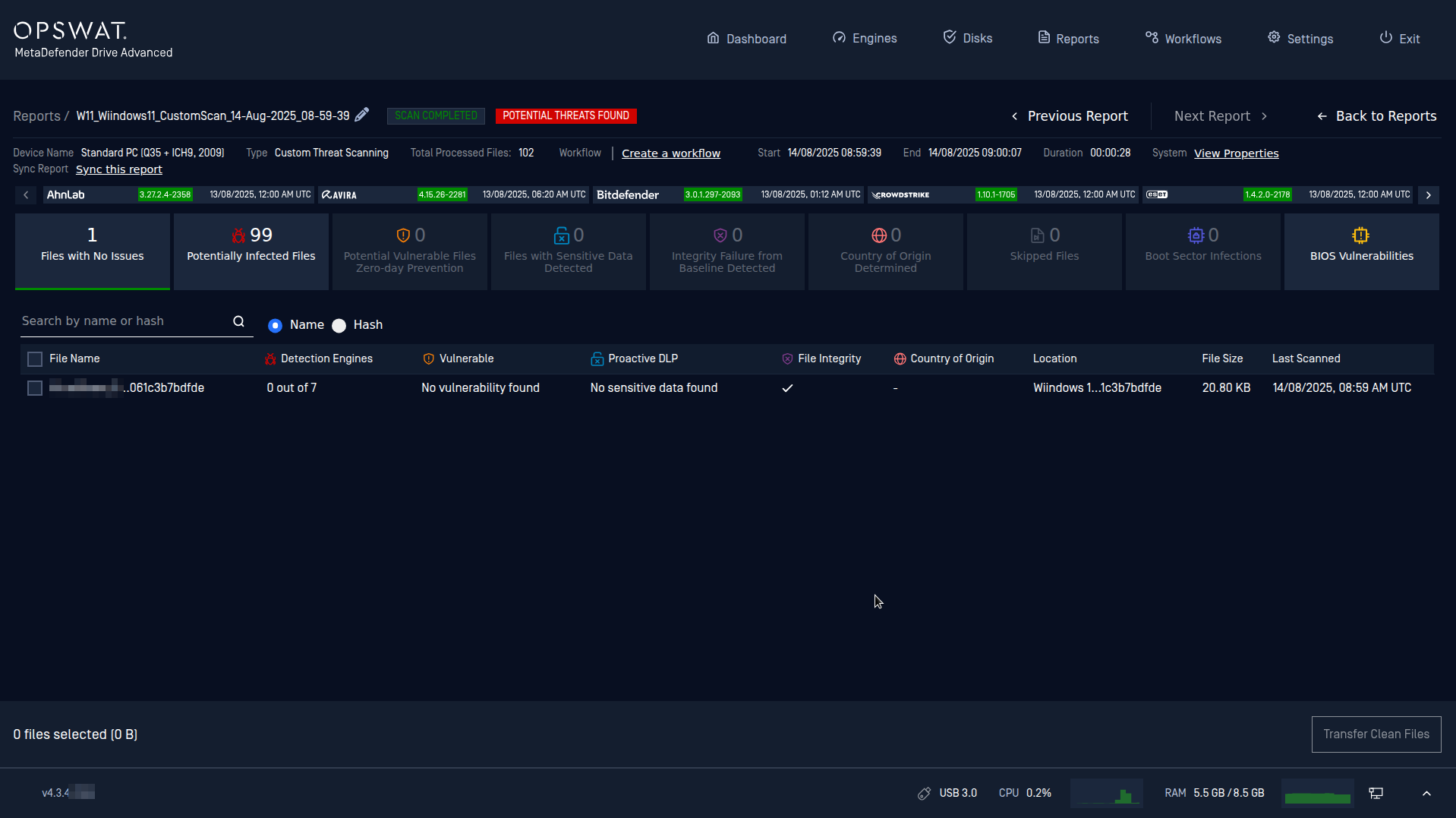
Potentially Infected
Includes a list of files with potential malware infection:
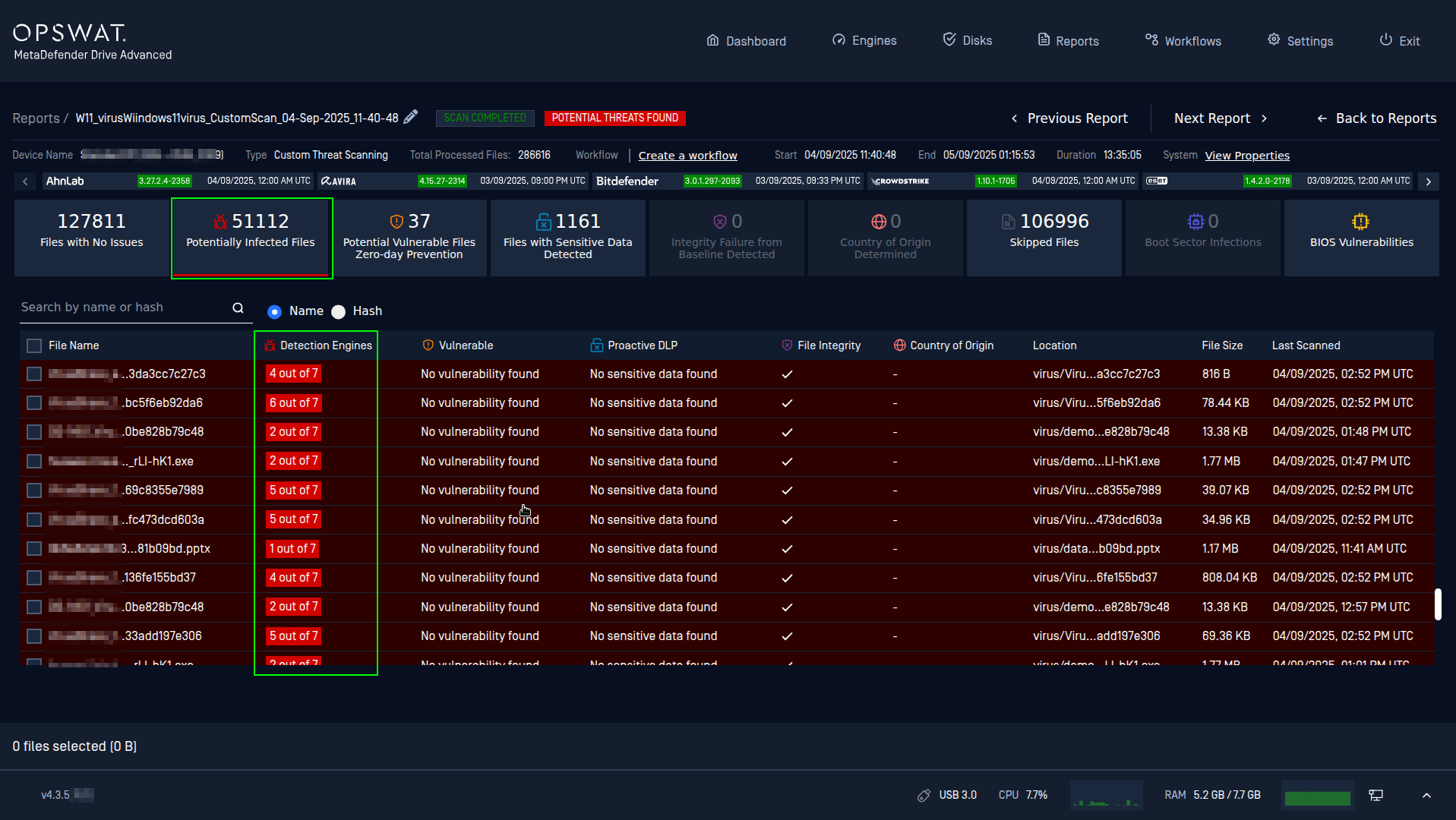
Potentially Vulnerable Files
Includes a list of files with potential vulnerabilities that are suspected to be a cause of a Zero-Day attack:
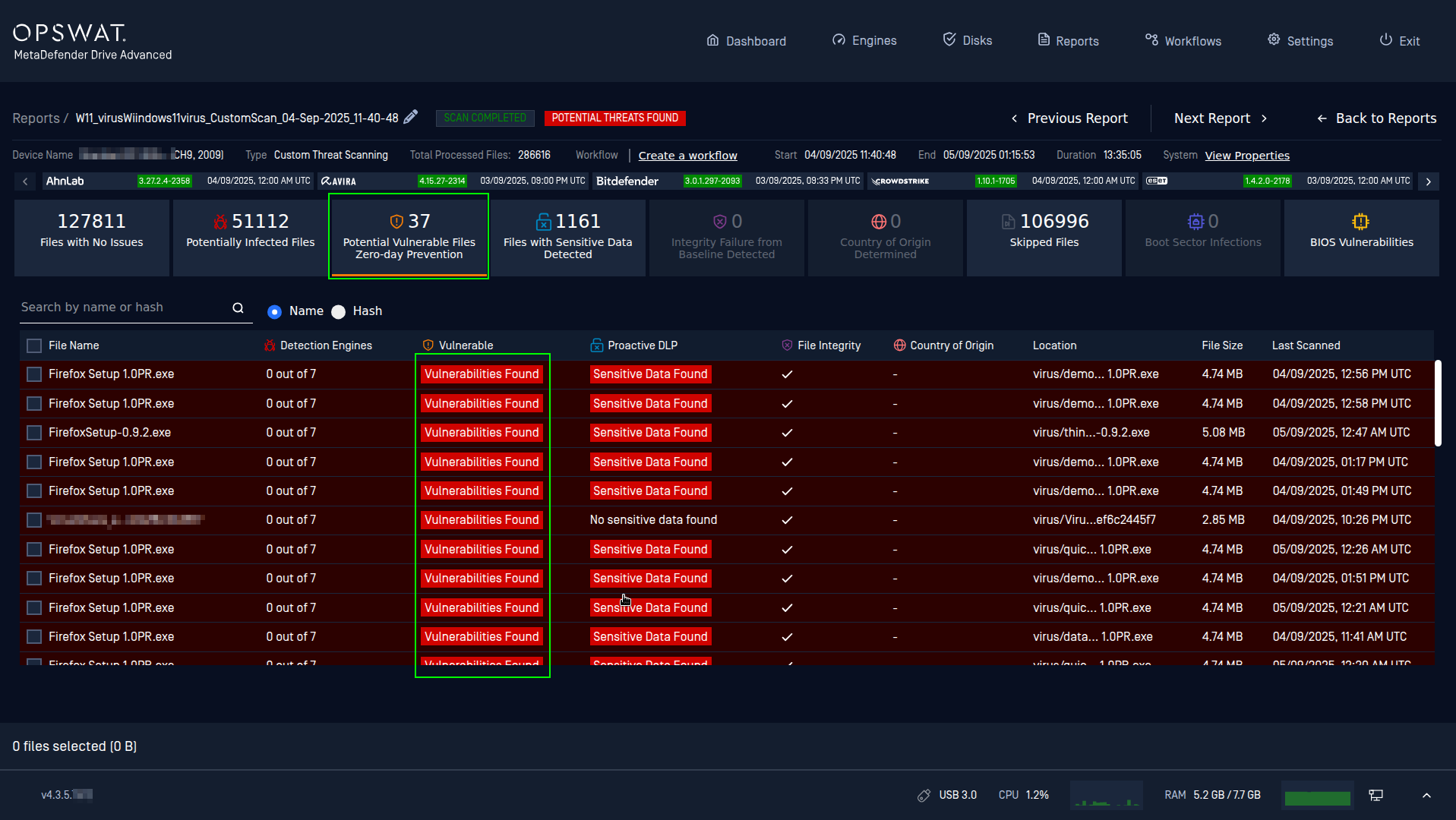
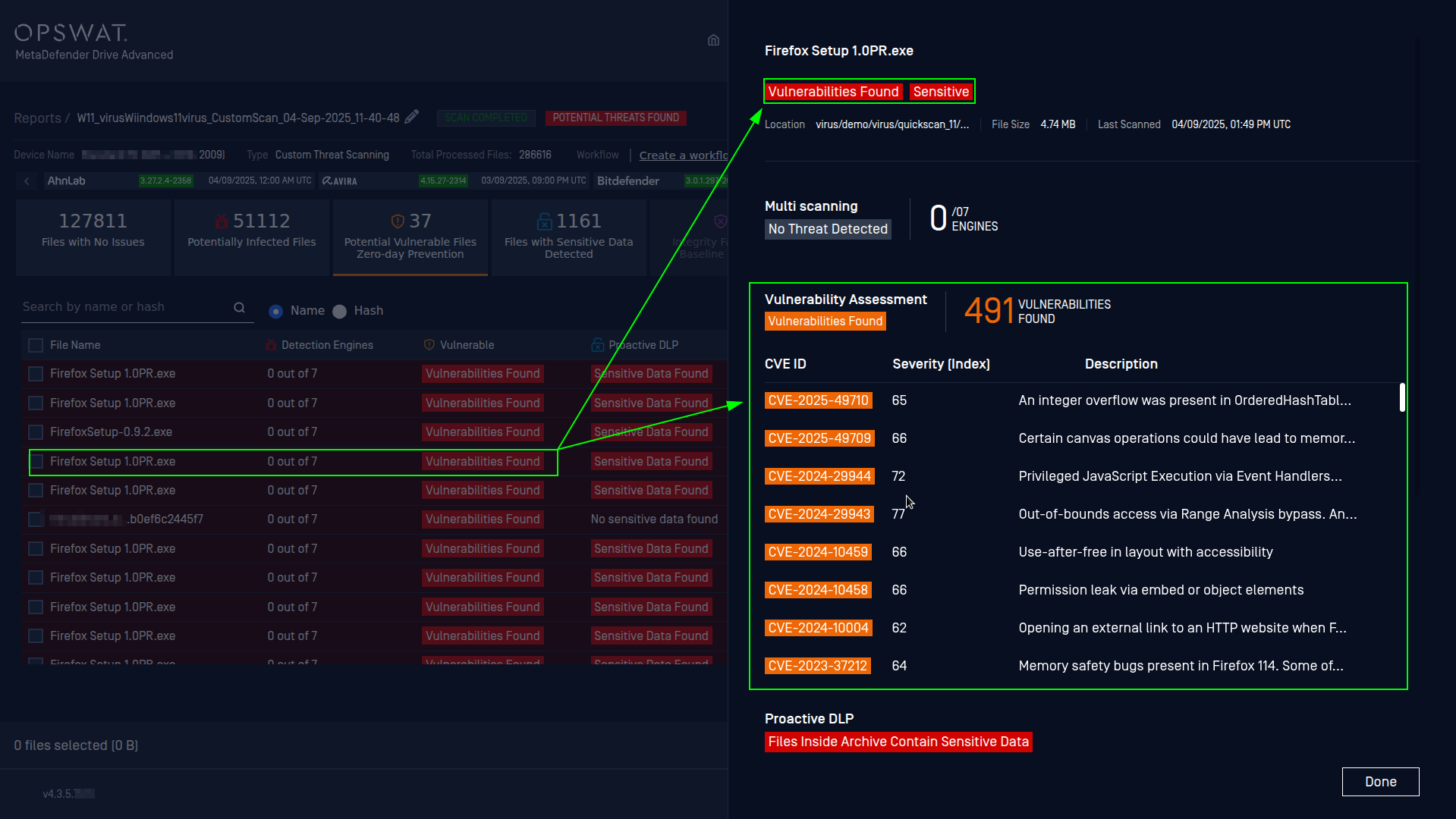
Sensitive Data
Includes a list of files with detected sensitive data, such as passwords and private keys:
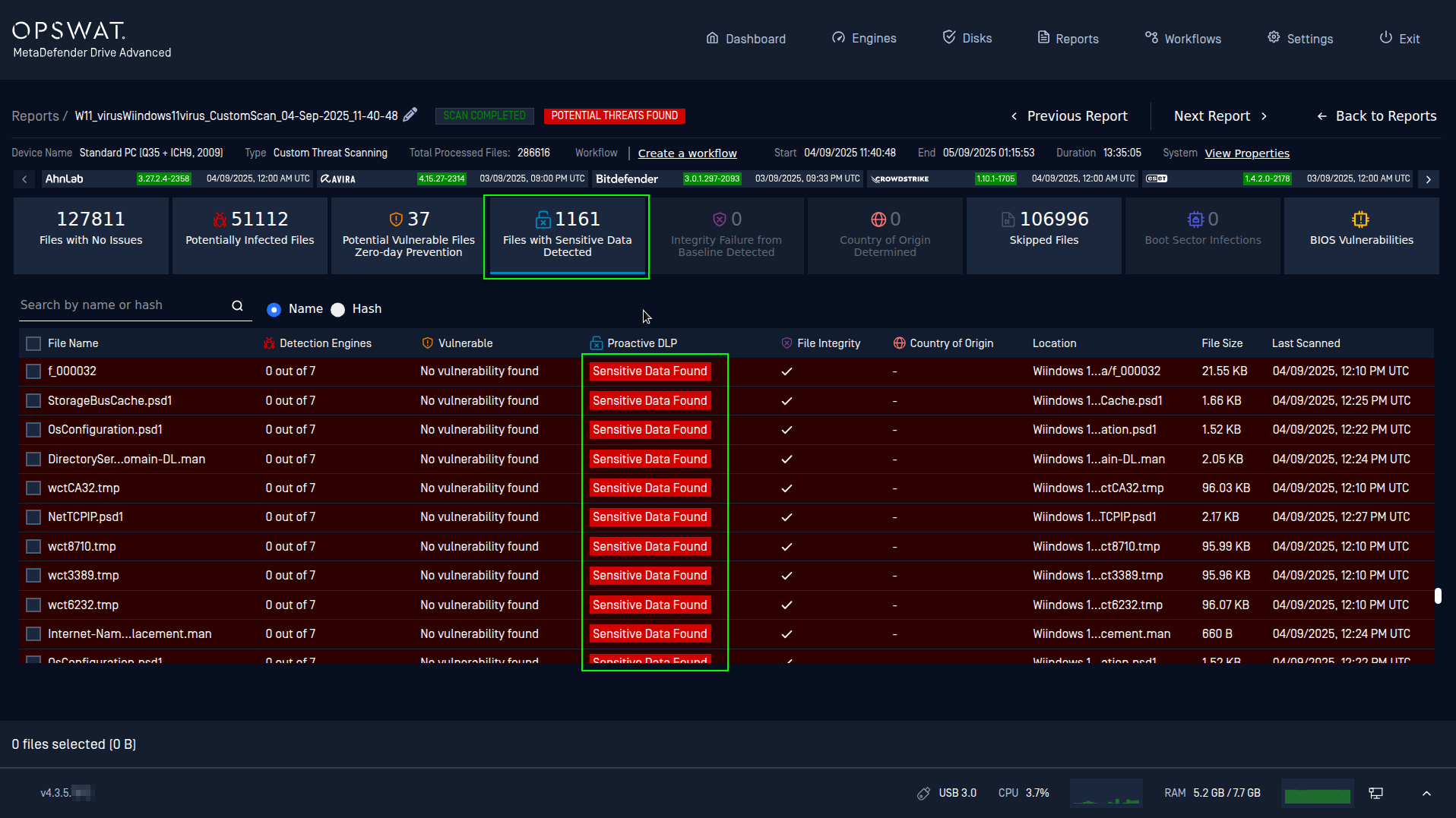
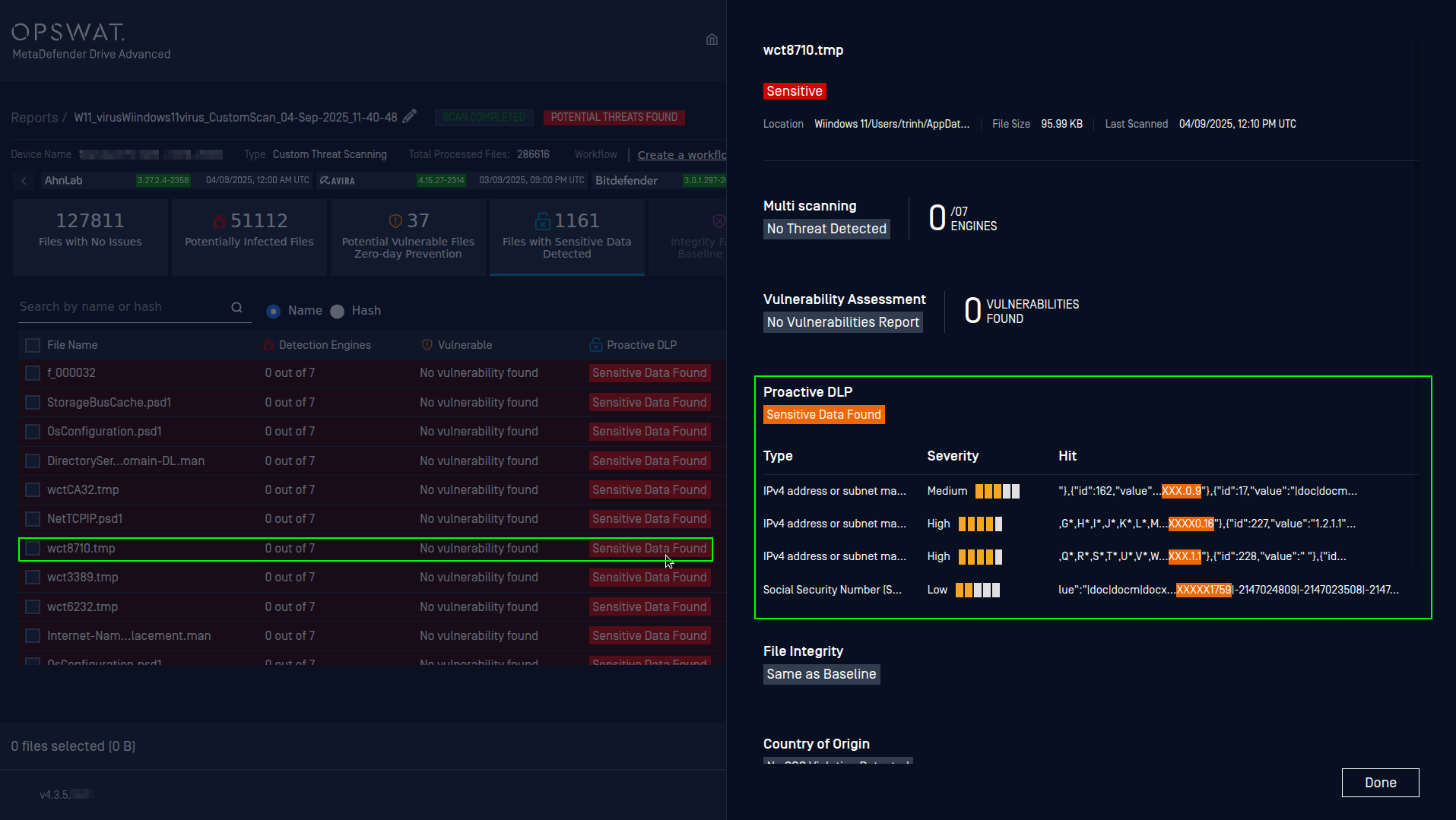
Country of Origin
Includes a list of files with non-compliant country of origin. You can set the list of non-compliant countries from Settings → Preferences.
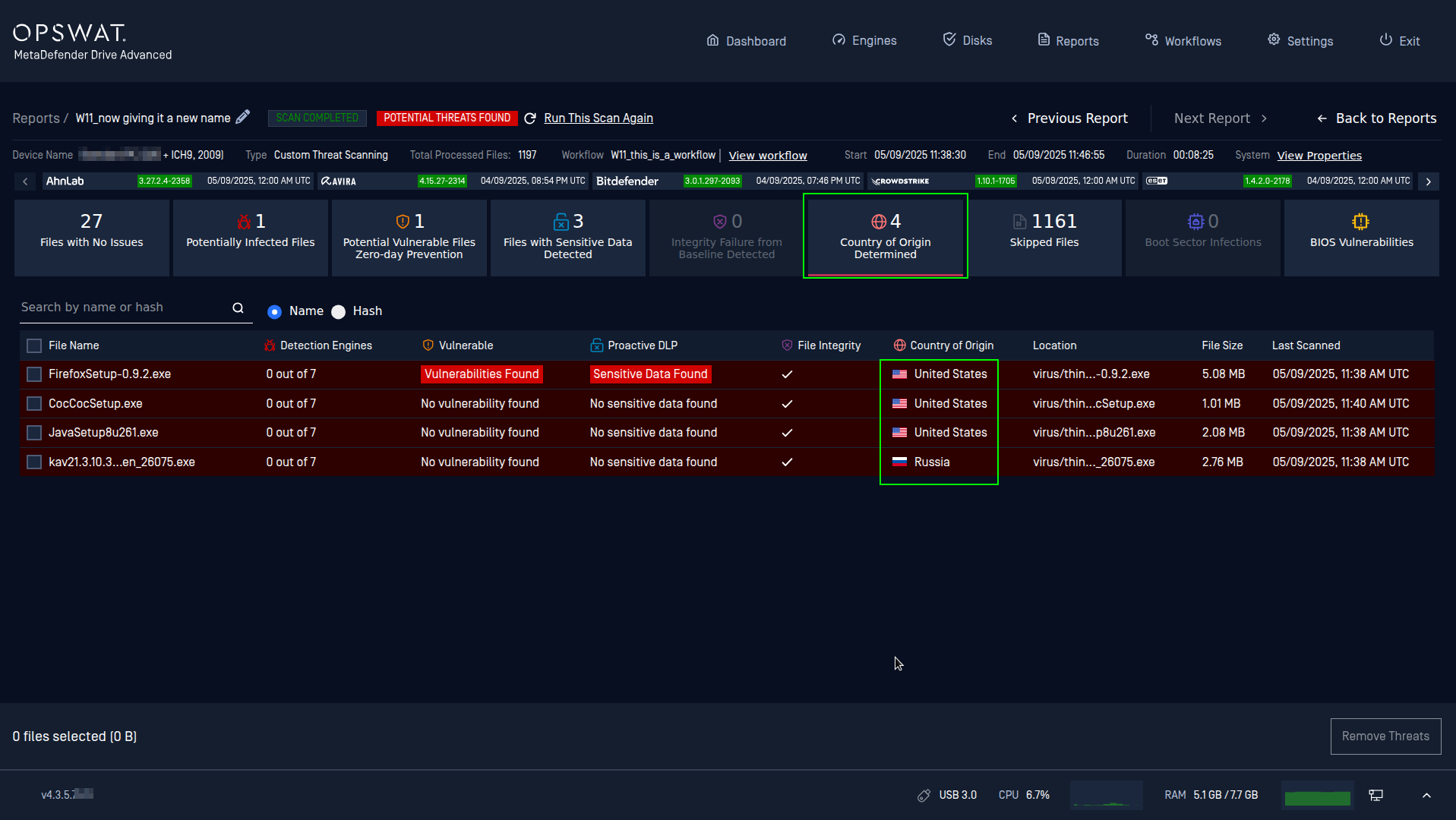
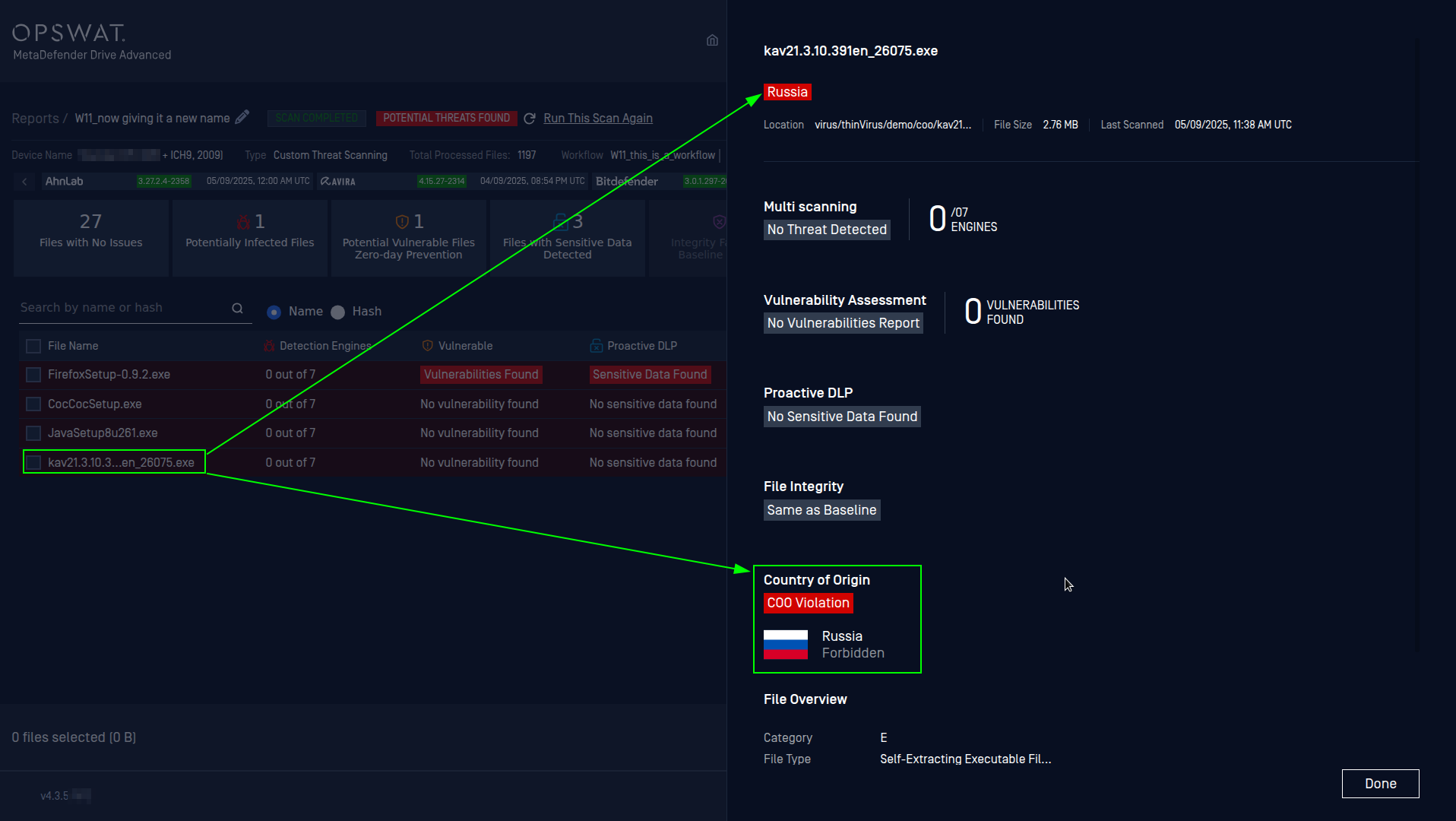
Integrity Failures
Integrity failures are detected when a baseline is set for a workflow. In that case, when you select Rerun from the Workflow page or Run this scan again from the Reports page, MetaDefender Drive will compare every single file in the scanned path associated with the selected workflow to their baseline. The Integrity Failure result will include details of the differences found. You can learn more about workflows on the Using Workflows page.
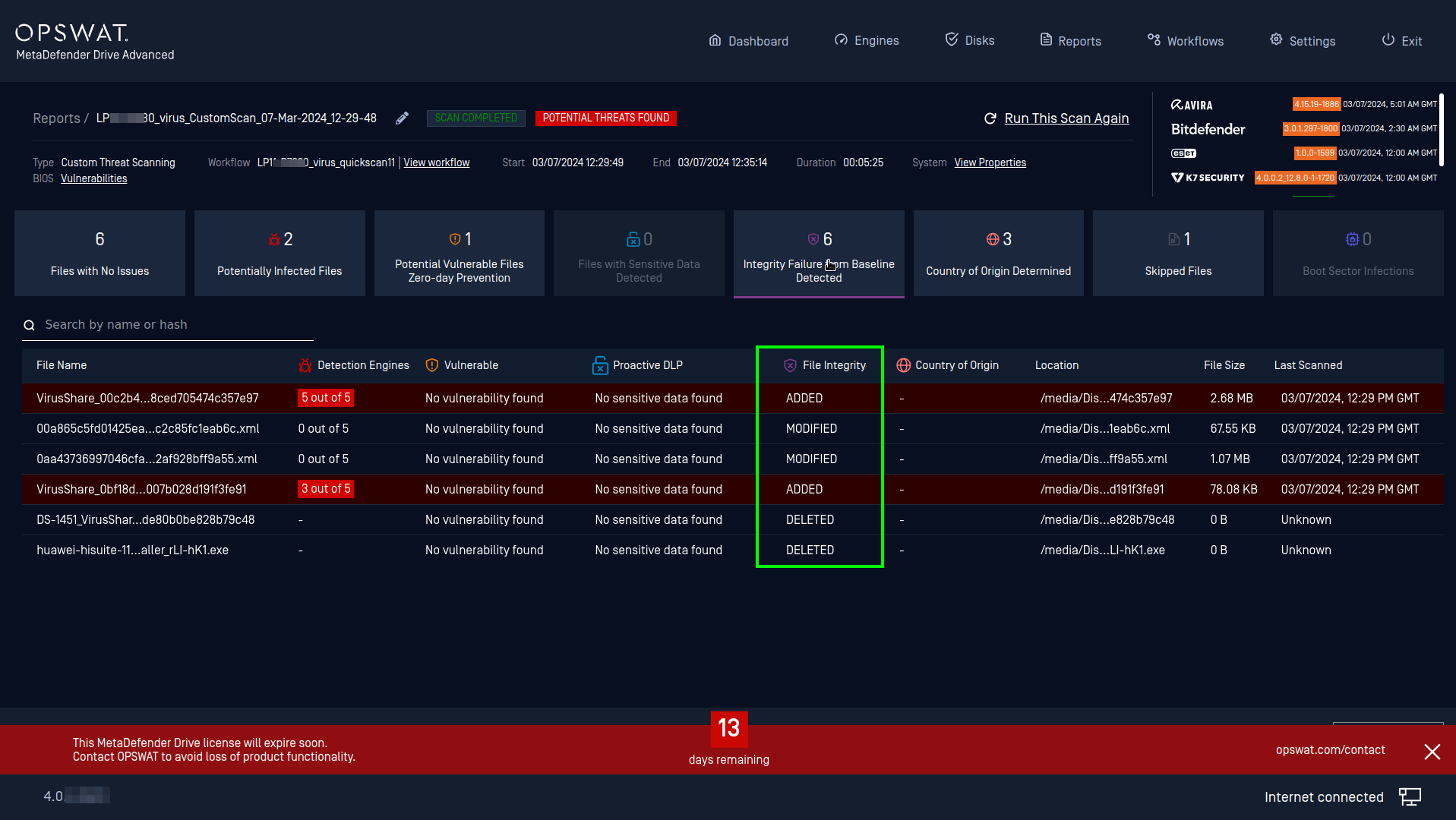
New and modified files detected after comparing the scan results to the baseline
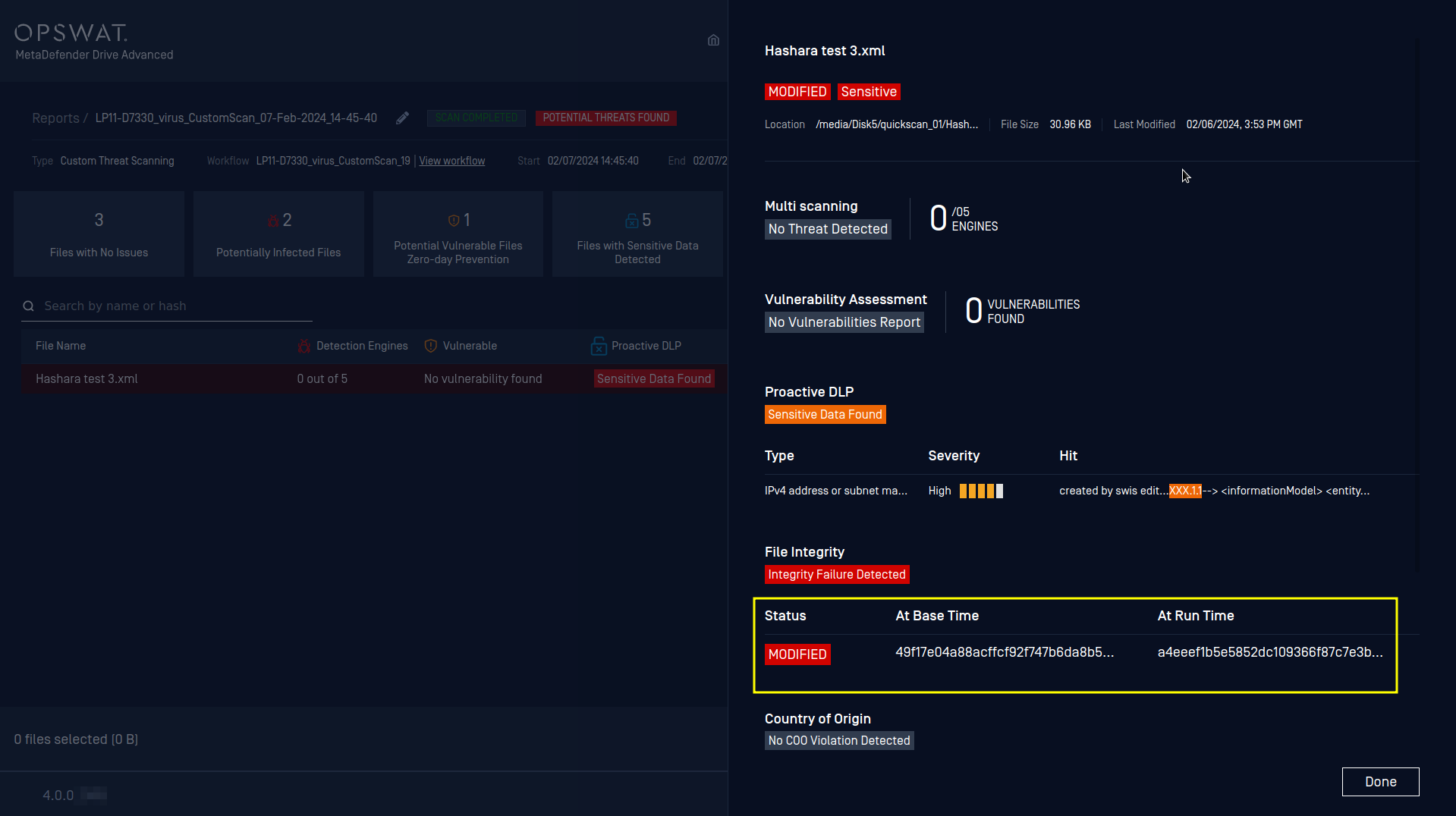
Detected a file that was modified with sensitive data after comparing it to the baseline report
Boot Sector Infections
Includes the system partitions infected by boot sector malware.
It is advised not to boot the system if a boot sector malware was detected. The recommended action is to format the disk or perform OS and applications data recovery from a full-image backup or a restore point.
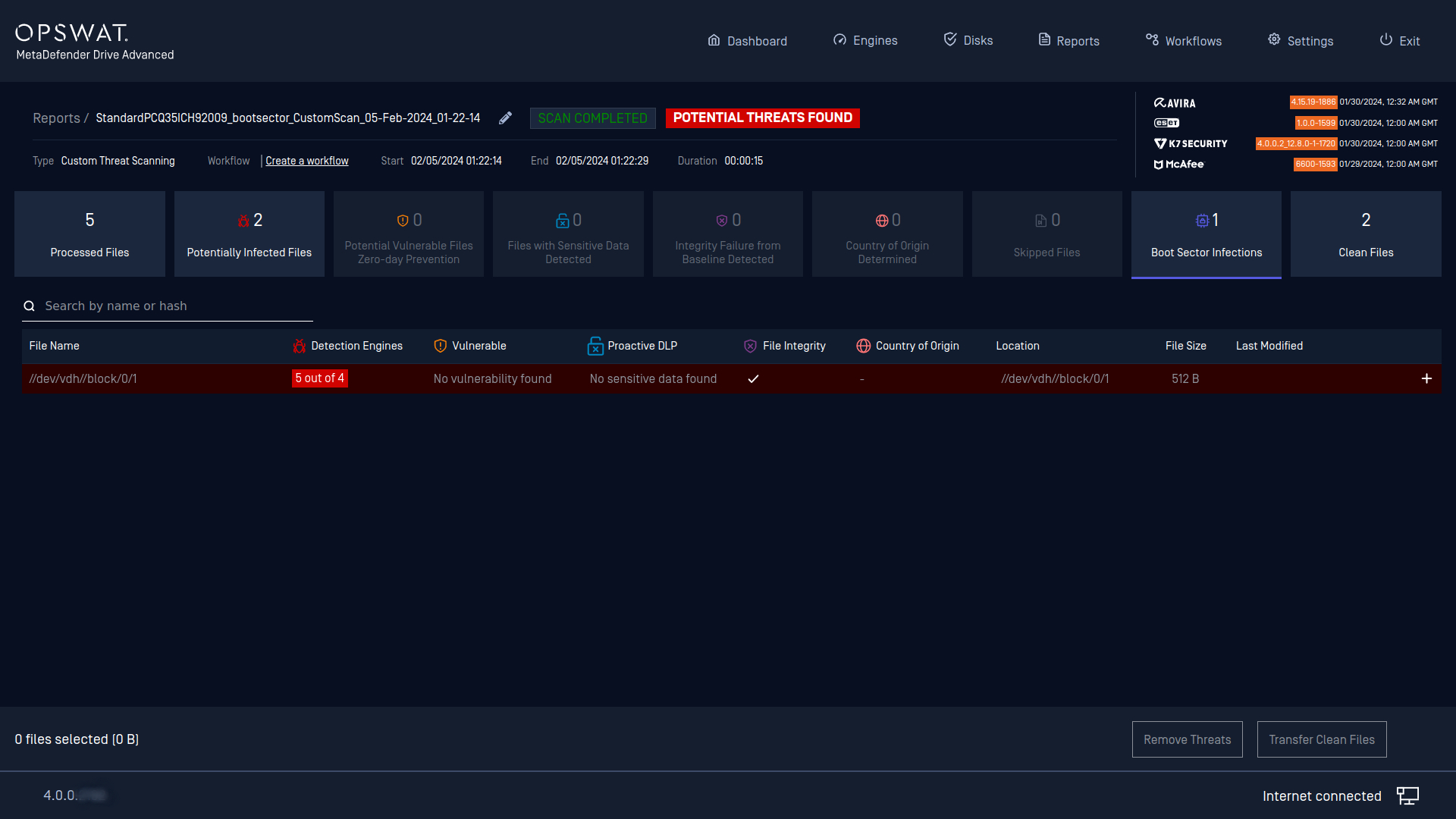
Boot sector infection detected
Firmware (BIOS/UEFI) Vulnerabilities
Includes a list of the detected firmware vulnerabilities that could make your device vulnerable to RootKit attacks.
In case of a firmware vulnerability detection, MetaDefender Drive will provide details about the last time your system's firmware was upgraded if a more recent version of the firmware is available, and the CVEs that might be present in the current version.
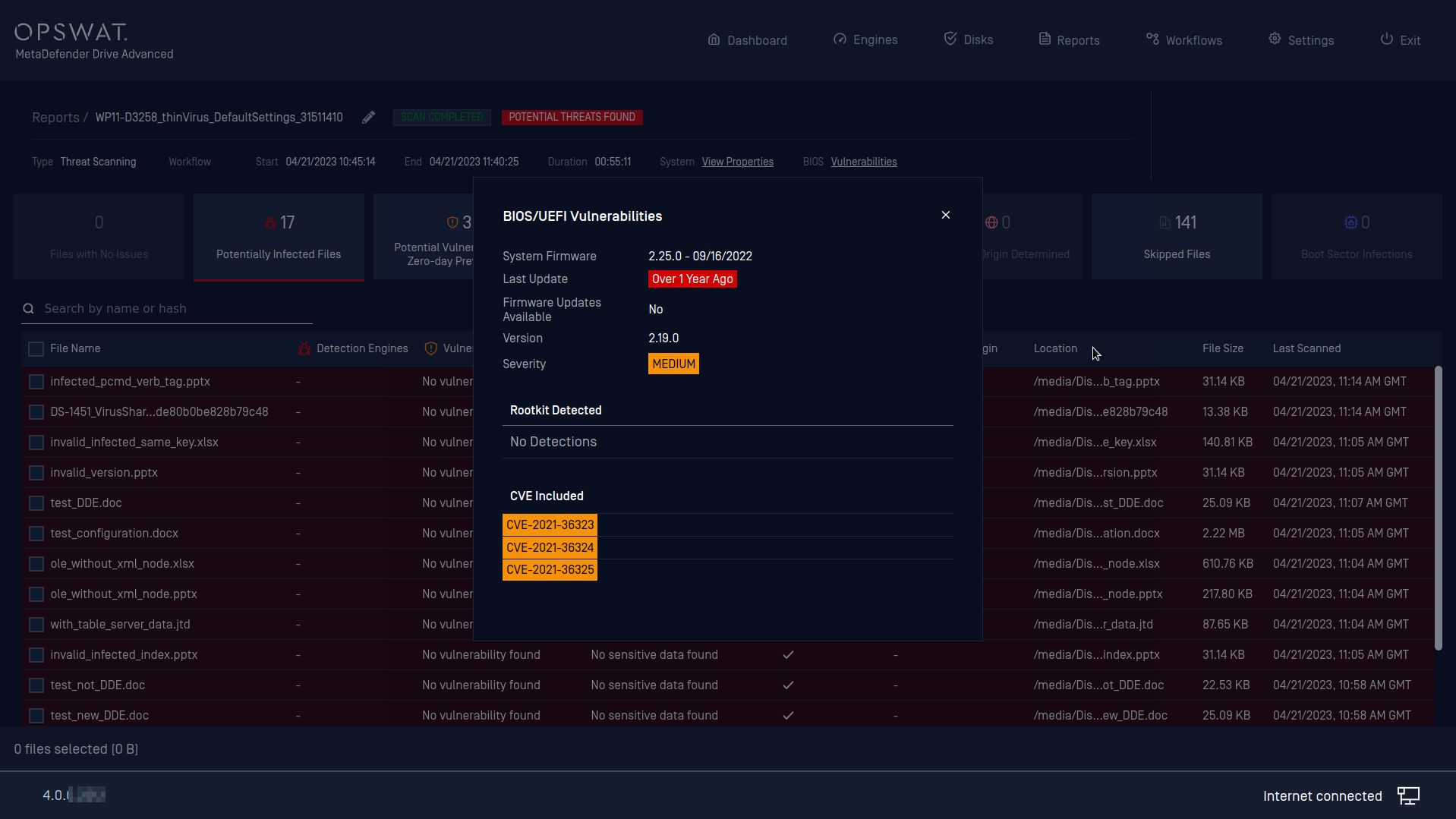
Details of a firmware vulnerability
OPSWAT maintains a database of firmware upgrades and keeps it updated periodically with each release. If you find a mismatch or outdated information, please contact OPSWAT with detailed information about the system.
System Properties
By clicking the View Properties button at the top of the scan results page, you will be able to view properties extracted from the scanned system, including Serial Number, CPU, Memory, Hostname, Operating System, IP address, and MAC address.
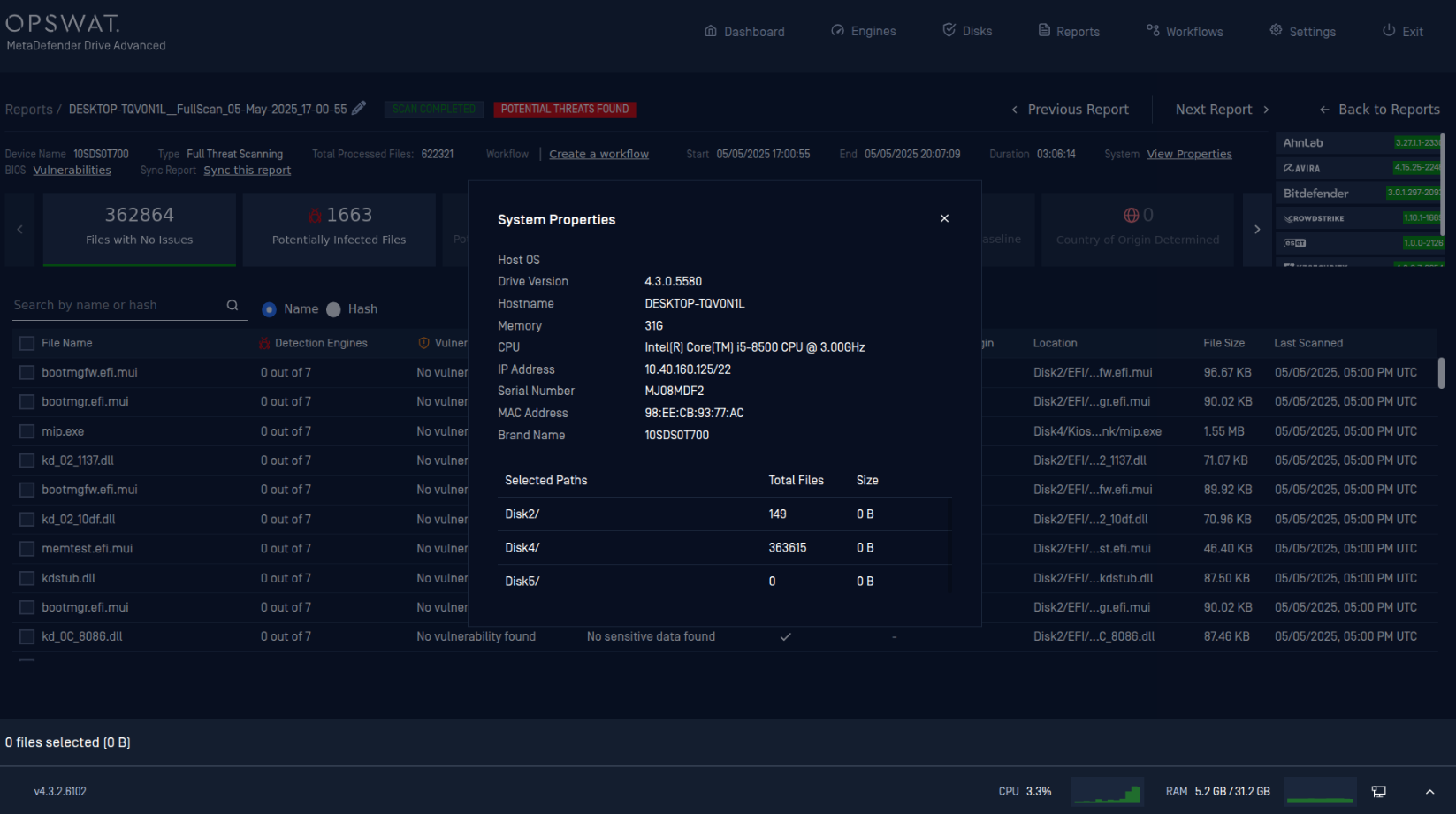
System Properties window
Saving Report Files
After each scan, the report will be saved in the /reports folder of MetaDefender Drive's NTFS partition. From Settings → Preferences → Reports, you can choose to save the scan reports in the following formats: JSON (default), TXT, PDF and CSV.

Report saving formats
Saving reports to external media is recommended to ensure no data is lost in case of a MetaDefender Drive malfunction.
.

